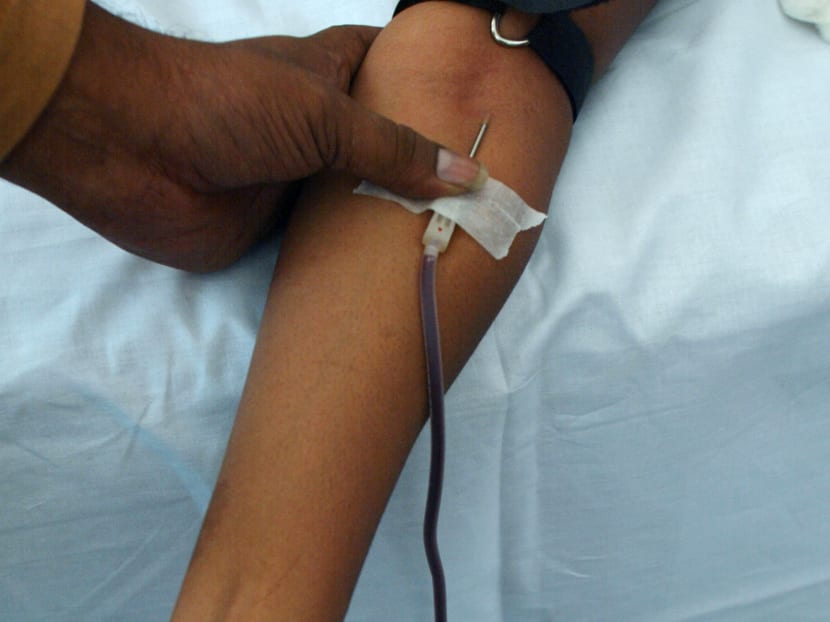Platelet transfusions may not help dengue patients: Study
SINGAPORE — Blood transfusions given to adult dengue patients with low blood platelet counts and who do not suffer severe bleeding are not effective, a study led by doctors here has found.
SINGAPORE — Blood transfusions given to adult dengue patients with low blood platelet counts and who do not suffer severe bleeding are not effective, a study led by doctors here has found.
Platelets are tiny blood cells that help one’s body to form clots to stop bleeding. When it comes to dengue, platelets are often associated with recovery, although there has been much debate in recent years whether platelet transfusions should be given to prevent the possibility of internal bleeding in dengue patients.
According to the doctors, besides preventing potential complications caused by platelet transfusions, their findings can also help avoid the blood shortage that occurs in many countries during dengue season due to the high demand for transfusions, even in not-so-severe cases.
The study, which involved 372 dengue patients aged at least 21 years, was carried out from April 2010 to December 2014 by doctors at Tan Tock Seng Hospital, National University Hospital, Singapore General Hospital, Changi General Hospital and Malaysia’s Universiti Malaya Medical Centre.
Their findings were published in medical journal The Lancet recently.
The patients in the study were found to have confirmed or probable dengue and thrombocytopenia (low platelet count) without persistent mild bleeding or any severe bleeding.
During the study, one group of patients was given platelet transfusions and supportive care, which consisted of bed rest, fluid therapy, and fever and pain medications. Another group of patients was given only supportive care.
The study found that in adult patients with dengue and thrombocytopenia, platelet transfusion was “not superior to supportive care in preventing bleeding, and might be associated with adverse events”, although these problems, such as chest pain or rashes, were all resolved for transfused patients. “Hence, bleeding risk in dengue — which can be due to a range of other factors — might not be improved by platelet transfusion alone,” the doctors said.
Given the scarcity and potential safety concerns of blood products in situations where resources are limited, a platelet transfusion “for patients with uncomplicated dengue is not recommended, since no benefit in reduction of clinical or severe bleeding or improvement in platelet recovery was shown” in their study, the doctors said in the Lancet article.
Dengue, which is spread through the bite of the female Aedes mosquito, is estimated to affect 390 million people around the world every year.
In January this year, the National Environment Agency said the number of dengue cases in Singapore could increase over the next few months, reaching their peak by the middle of this year.
Last year, there were a total of 13,115 dengue cases here, below the projection of more than 30,000 cases.










